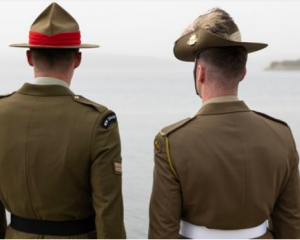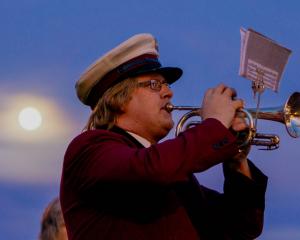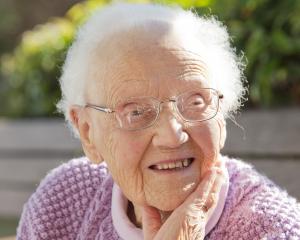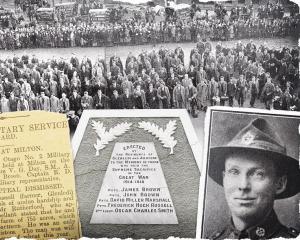Several years ago, Evan Lloyd, who was born in Dunedin but now lives in Brisbane, set out to trace his family tree.
While doing that, he discovered his great-uncle, Lt Lamb, and was inspired to learn more about his life, even hiring, at one stage, a historian to obtain copies of historical files in Wellington.
Mr Lloyd (47) learned Lt Lamb had been fatally injured by shell fire at 3pm on his birthday, June 19, 1916, while on signal duties, and had died at a field hospital at 1.30am the following day, later being buried at Armentieres, in northern France.
Family members told him memories of Lt Lamb had long dimmed, even in family circles.
Mr Lloyd has since done much to restore those memories, including establishing an internet site devoted to Lt Lamb's life and military service.
Yesterday, Mr Lloyd was invited to give a talk about his great-uncle at a pre-Anzac Day school assembly at Kaikorai Primary School.
Lt Lamb was a former pupil at the school and is commemorated on the school's roll of honour as one of more than 100 former pupils killed in World War 1.
School principal Simon Clarke said yesterday's assembly had been a "fantastic commemoration" and Mr Lloyd and his family members had brought a "whole new dimension" to the occasion.
In his talk, Mr Lloyd noted Lt Lamb was one of the first New Zealanders to land at Gallipoli, at 9.30am on April 25, 1915.
Today's Anzac Day ceremonies commemorate that day, exactly 97 years ago.
Lt Lamb survived the Gallipoli fighting, which resulted in the death of more than 2000 New Zealanders, and was then transferred by ship to France.
There, after many days of travelling through the cold and rain, he arrived at the Western Front, where the Germany Army was intent on invading France.
He was in charge of men whose responsibility was to provide telephone lines between groups of soldiers, to communicate military information.
Mr Lloyd, a paramedic manager in the Queensland Ambulance Service, said his research had been "tremendously" inspired by his great-uncle.
"I've given very little- he's given everything."
"If you can remember one person, then you can relate that to remembering many [others]," he said.
It was hard to grasp the enormity of the World War 1 death toll, but what he had learned about his great-uncle had now made the war "a little bit more personal".












